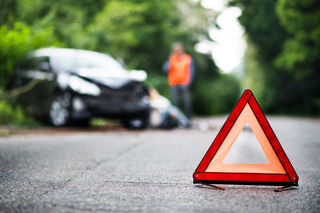IAM Roadsmart is warning that a blanket ban on pavement parking could leave thousands of homeowners without a parking space.
The House of Commons Transport Committee launched an inquiry into pavement parking and invited comments from interested parties in April.
One suggestion that has emerged is a blanket ban on all vehicles parking on any part of a pavement, but IAM RoadSmart says this could cause a major parking headache for drivers across the country.
In its submission to the committee, the road safety charity said: “Where pedestrians are being put in danger or denied access by inconsiderate pavement parking, or if costly long-term damage is being done, then we have no problem with local solutions being implemented for local problems.
“Local councils should be encouraged to use their existing powers to sign, define, review and enforce local bans as required.”
IAM RoadSmart director of policy and research Neil Greig noted that, with increasing numbers of cars on the road, local councils do not have the funding or the road capacity to provide the extra spaces people need to park if a blanket ban was introduced. Furthermore, local councils do not have the resources required to effectively implement a blanket ban.
“New traffic orders, new signposting, new road markings and new enforcement administration will all be required at extra cost if a blanket ban is introduced,” explained Greig. “Councils are already struggling to implement low emission zones, cycling and walking policies, active travel policies, 20mph zones and a host for other transport measures against a background of budget cuts and dwindling resources.”
Furthermore, IAM RoadSmart says a blanket ban risked creating conflict between residents as they attempt to find a place to park, often in areas where there has never been a road safety problem.
In addition, while many would like to see stricter penalties for pavement parking, IAM RoadSmart said enforcement must always be seen to be fair and well targeted. Penalties should only be used to encourage behaviour change and the take-up of alternatives if they can be provided.





















Login to comment
Comments
No comments have been made yet.